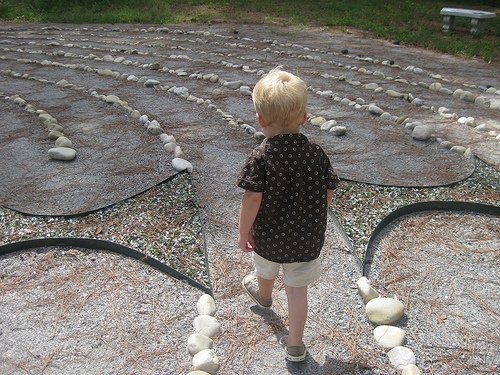blog
“I didn’t know if I should be myself or someone else. It seemed easier to be someone else….”
David Bowie, in the early stages of his career
The various manifestations of David Bowie
In fact, as the ‘David Bowie is’ exhibition during 2013 at the Victoria and Albert museum in London showed us, rather than being someone else, David Bowie (who died in January 2016) discovered many different realisations of himself over the course of his career: pop artist, visual artist, mime artist, costume creator…. Always hungry for as many different experiences as he could have, he absorbed the learning from them and creatively shaped it into countless different manifestations, revealing himself to be multi-talented.
Treading a new path: creativity and innovation
I know next to nothing about pop, and I knew nothing about David Bowie before seeing this exhibition. There are aspects of Bowie’s life and work that I find compelling and exciting, and others that I don’t find at all pleasing or attractive. However, what I find engaging about this story is his constant quest for learning and creativity through experimentation, his versatility and his courage to innovate and take risks, to claim his position ahead of the game (indeed to create the game), to inspire millions – in sum, to go where no-one had been before. There are those who say he was among the most influential pop stars of his generation. He changed lives and pioneered new ways of perceiving the world.
Collaboration
Interestingly, Bowie’s creations were not all entirely autonomous. He had a talent for collaboration and for working with the best people he could find in a whole variety of fields, including choreographers like Lindsay Kemp, photographers like Mick Rock, producers like Brian Eno and Tony Visconti, and fashion designers like Kansai Yamamoto.
I’m mindful too of the strength of diversity in collaboration: bring two very different talents together and the outcome can be dazzling. Team-builders and organisational development professionals: take note.
Leadership, learning and the courage to pioneer
None of the leaders I coach have so far been nearly as flamboyant or as fiercely creative as Bowie. However, it occurs to me that in a world of constant change and challenge, a world in which new situations and perspectives arise at a faster rate than ever before, there’s a message here for leaders.
The leadership that will take us forward in the most turbulent and fast-changing climate we have ever known, is, likewise, leadership that values learning, creativity and innovation, that reads the market and the system, and that has the courage to pioneer. I’m reminded of marketing thought-leader and visionary Seth Godin, who talks of innovation as being more critical than ever before – and emphasises that we need to create – and give others – the opportunity to succeed or fail. The key thing is to learn from the experiences.
The freak becomes the unifier
By publicly forging his own way, and building massive success by uncompromisingly being who he was, Bowie demonstrated that not only are we free to be whoever and whatever we want to be – but that he did – after all – know how to be himself. As actress and model Tilda Swinton said at the opening of the V&A exhibition, the freak became the great unifier. Leaders who are courageous enough to stand up for what they claim as their values can likewise unify, inspire, engage and capitalise on the talent of their people.
Photo by Hunter Desportes via Compfight
Creativity, innovation and leadership
David Bowie, pop artist and visual artist, was a creative and innovative pioneer. The leaders we need in our turbulent and fast-changing climate likewise value experimentation, creativity and innovation, they read the market and the system, and they have the courage to pioneer.
Read more »Career refocus: stepping off the treadmill
Several of my executive coaching clients feel like they're on a treadmill, stressed and under pressure. And yet it's exceptional for any of them to choose to get off the treadmill. Instead, they make career decisions based on a fuller sense of awareness, within a context of well thought-through perspectives, rather than being based on emotion, stress, exhaustion or just not seeing broader horizons
Read more »Development and transformation as coaching outcomes
Development is the release of more of an individual's potential and transformation is a fundamental shift in thinking, feeling or behaving. In my experience the shift is often around a previously unresolved issue that an individual has kept carefully guarded for a very long time. When they make their peace with that old issue in a transformational way, the change sticks and the chances are higher that they will become a transformational leader.
Read more »Mindfulness: coaching the leader
Mindfulness training and practice enable sustained attention, an improved capacity to regulate emotions and to manage that chatter in the mind that can so inhibit constructive thinking, reduced stress levels and increased resilience and well-being. How will my clients benefit from my training in mindfulness.
Read more »Mindfulness, leadership and results
Mindful awareness is about learning to pay attention, in the present moment, and without judgement. It's like training a muscle - training attention to be where you want it to be. It's a valuable tool for impactful leadership.
Read more »Building blocks of healthy relationships: autonomy
Leaders who treat their people as autonomous adults are likely to get the best out of them: an autocratic style gets quick, short-term results but anything less than an empowering style doesn’t adequately nurture the discretionary effort and engagement that are essential for organisational success.
Read more »Building blocks of healthy relationships: respect, care and listening
Through healthy relationships individuals flourish, they become balanced and resilient, and they contribute to the world around them with energy and commitment. In such circumstances it’s relatively easy for people to learn how to manage their emotions by articulating them and being heard rather than judged. The messages for leadership are clear.
Read more »Relationships: the leader’s secret weapon
Leaders are sometimes tempted to focus on the task and the process for fulfilling that task. Such an approach may bring short-term results, but the real differences are made when the leader focuses on strengthening relationships, listening and building trust.
Read more »Neuroscience and the leader
We all have not one but several selves, and several self-esteems, and it is in part the job of the coach to enable the coaching client to raise their awareness of their range of selves rather than of one self. Self-esteem varies according to context and we have several self-esteems alongside our several selves. The coach can play a valuable role in working with the coaching client to uncover and manage those self-esteems.
Read more »The path to authentic leadership
An authentic leader is true to himself or herself, who therefore engenders trust, who leverages the potential of diversity, and who is able to manage with integrity the tensions between their own agenda and that of their organisation. The first and most fundamental step on this path is the journey towards self-awareness.
Read more »











